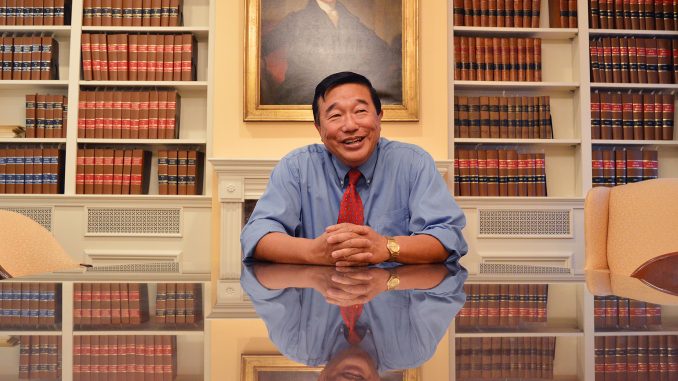
Jan Ting, a law professor at Temple, was assistant commissioner of the Immigration and Naturalization Service of the U.S. Department of Justice from 1990 to 1993.
So it was no surprise he was asked to write for the New York Times about the rising concerns of immigration in this country. Ting wrote an Op-Ed about this issue for the Times’ Sept. 3 edition of “Room for Debate,” which often takes expert opinions from outside contributors. He also regularly blogs on Newsworks and appears on 6ABC’s Sunday round-table discussion show titled “Inside Story.”
“I’m an academic, and you are supposed to write about what you are teaching in order to make your teaching better,” Ting said.
Ting mainly writes about immigration in various academic pieces and Op-Eds in newspapers. In “A Burden That Does Not Affect Americans Equally,” he speaks about the rise of the unemployment rate in the U.S. and his solution to this problem, which is to enforce existing immigration laws and reduce immigration.
“The alternative is what I call a binary choice,” Ting said. “You could either say open borders or set a limit of how many people could immigrate every year into the country, which should be a high number.”
Even with this stance he holds on immigration, he understands the importance of immigrants in the U.S.
“Both my parents were immigrants, so I grew up in immigrant communities, where it seemed like every family had either a parent or a grandparent in the house who were an immigrant from somewhere,” Ting said. “My parents were part of the wave of immigrants that came in as students, knowing that when you were done with your education, you needed to go home.”
Ting’s father, who graduated from medical school in 1943, served in the U.S. military during World War II. The Second War Powers Act of 1942 allowed him to stay in the country since it stated that foreign nationals on active duty were automatically considered citizens. As a professor, he urges his students to know about their “immigration story” and the importance of studying their family history. According to ancestry.com, 27 percent of Americans do not know where their family lived before they came to the U.S., and only 50 percent of American families have ever researched their family roots.
Recently, immigration has become a trending topic among the 2016 Presidential candidates, as well as a national conversation.
“We’re in a democracy and the American people need to make up their minds about what they want,” he said. “For this reason, immigration is a hot issue because it is too hard of a choice to make.”
“We are having a big immigration debate in our country because people only have two choices, but they do not like either one of them,” Ting added. “They do not like open borders, but they do not like enforcing a numeric limit on how many immigrants we should allow in the country.”
Gail Vivar can be reached at gail.vivar@temple.ed.



Be the first to comment